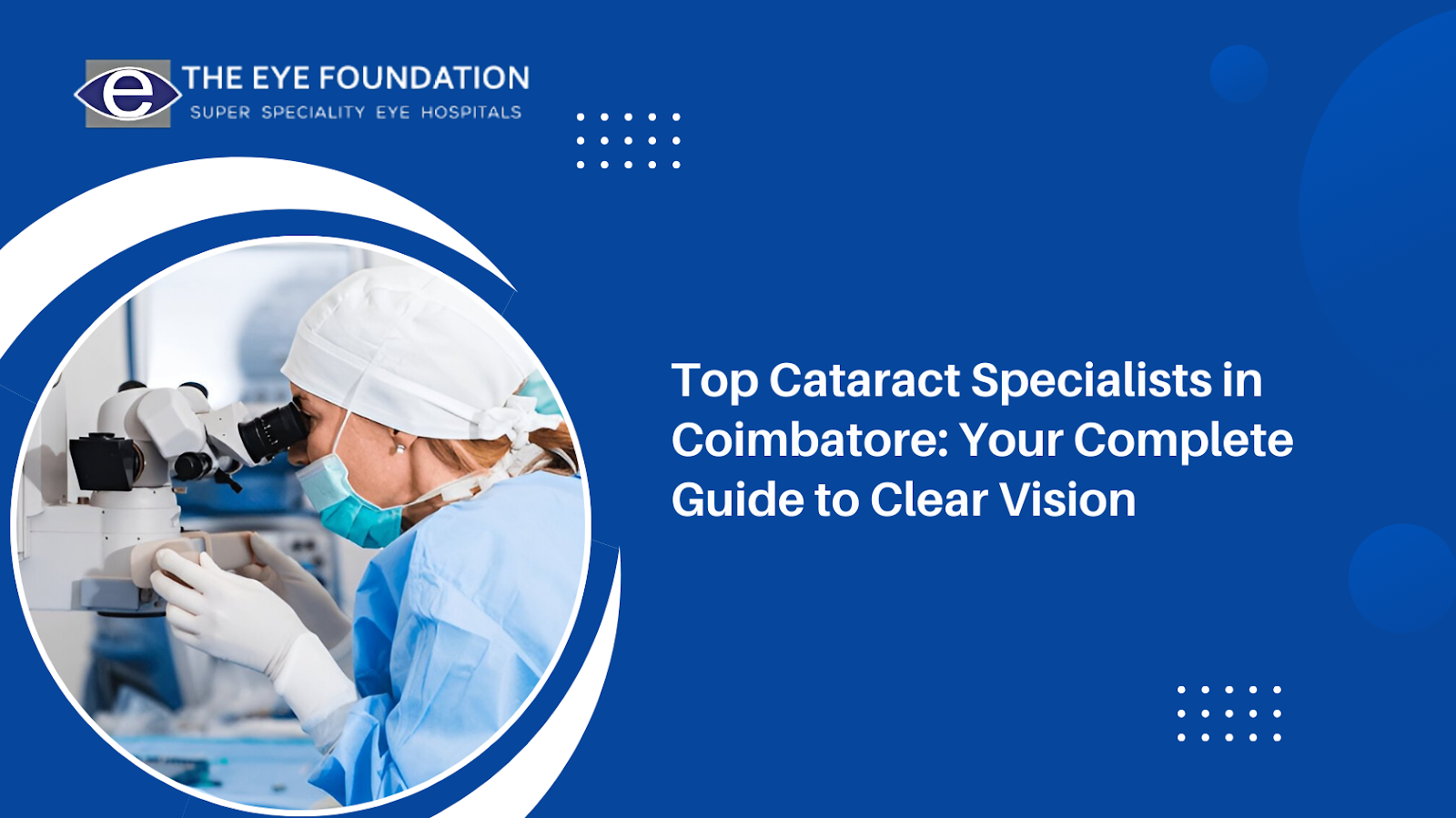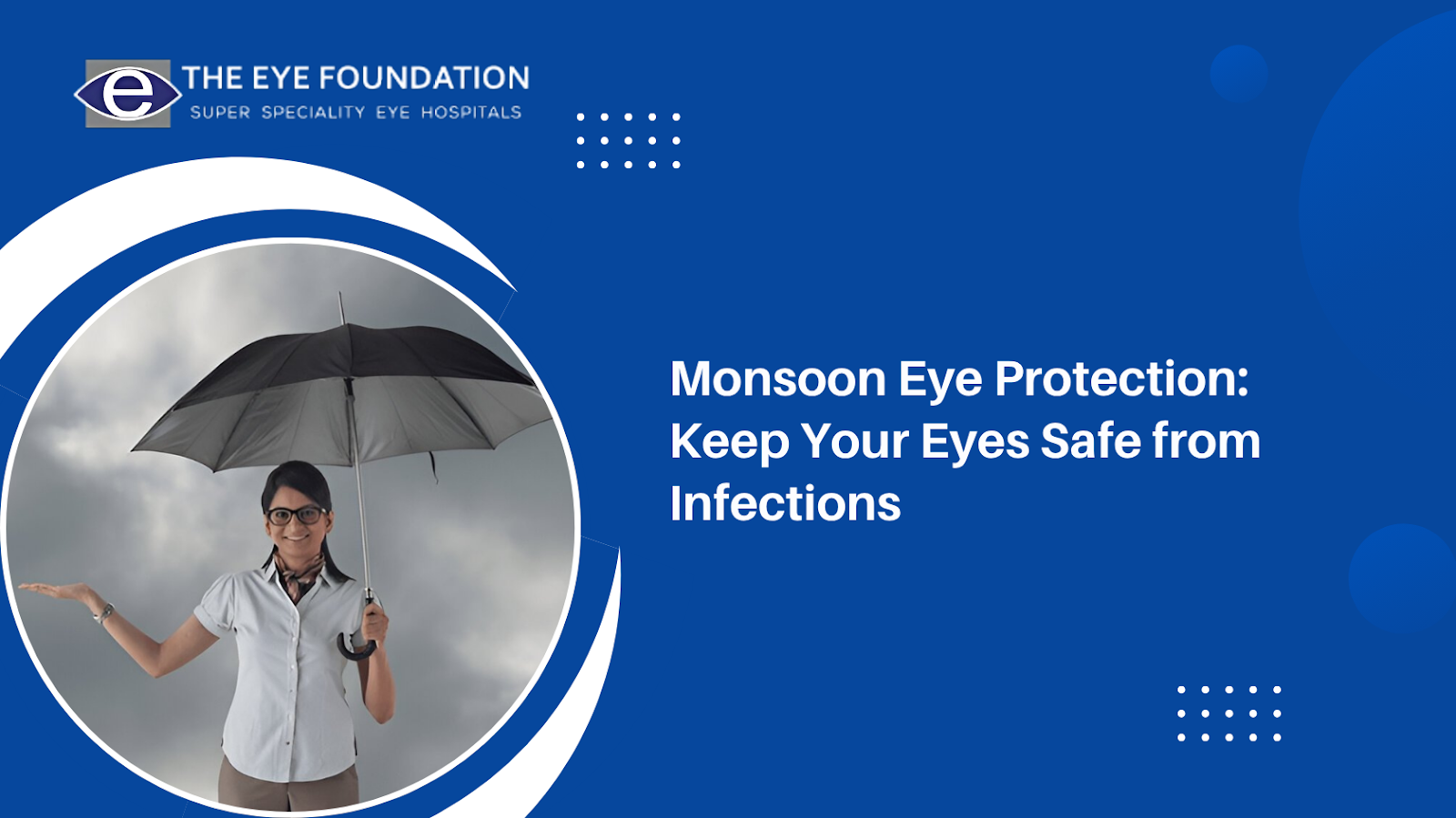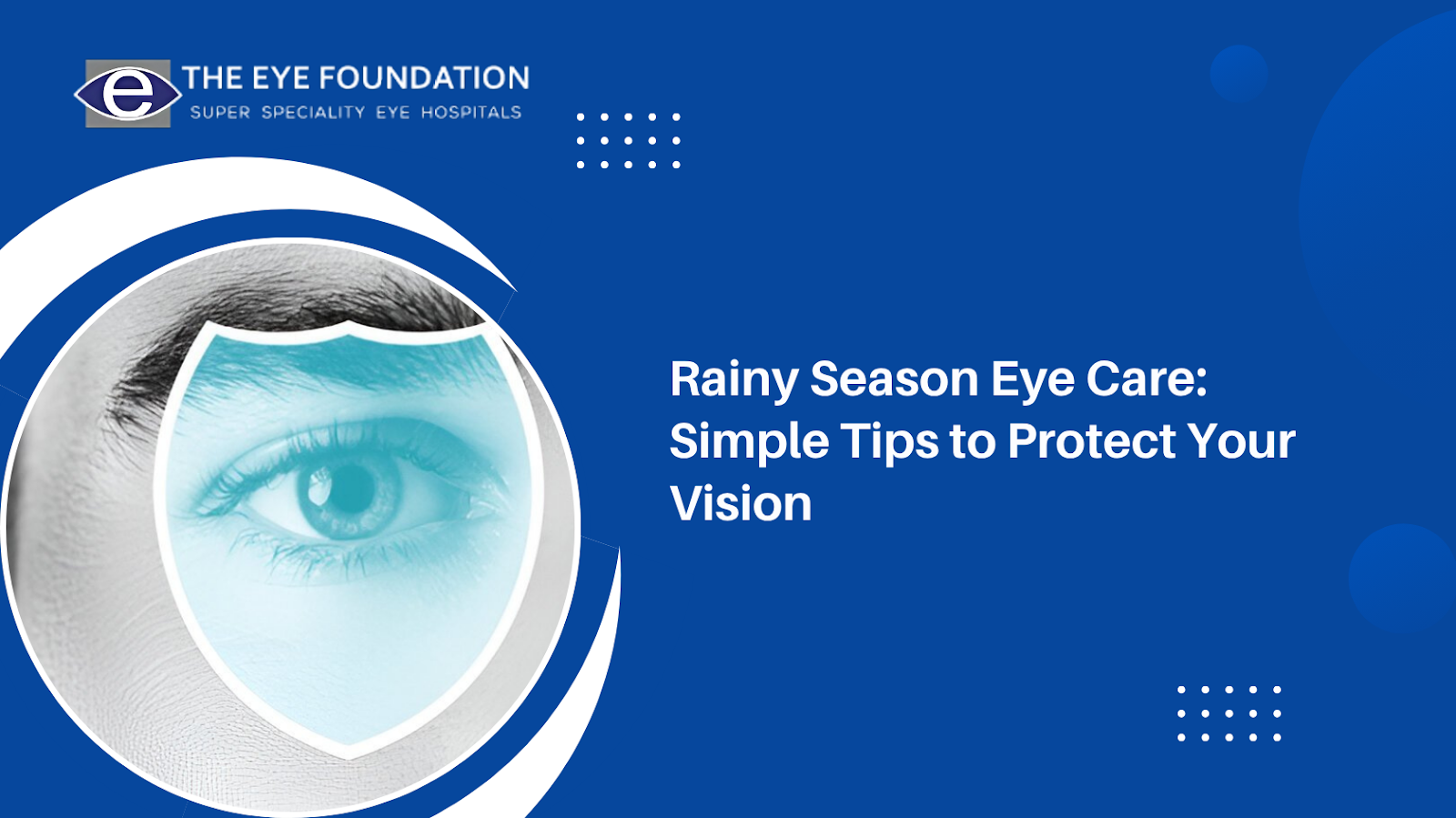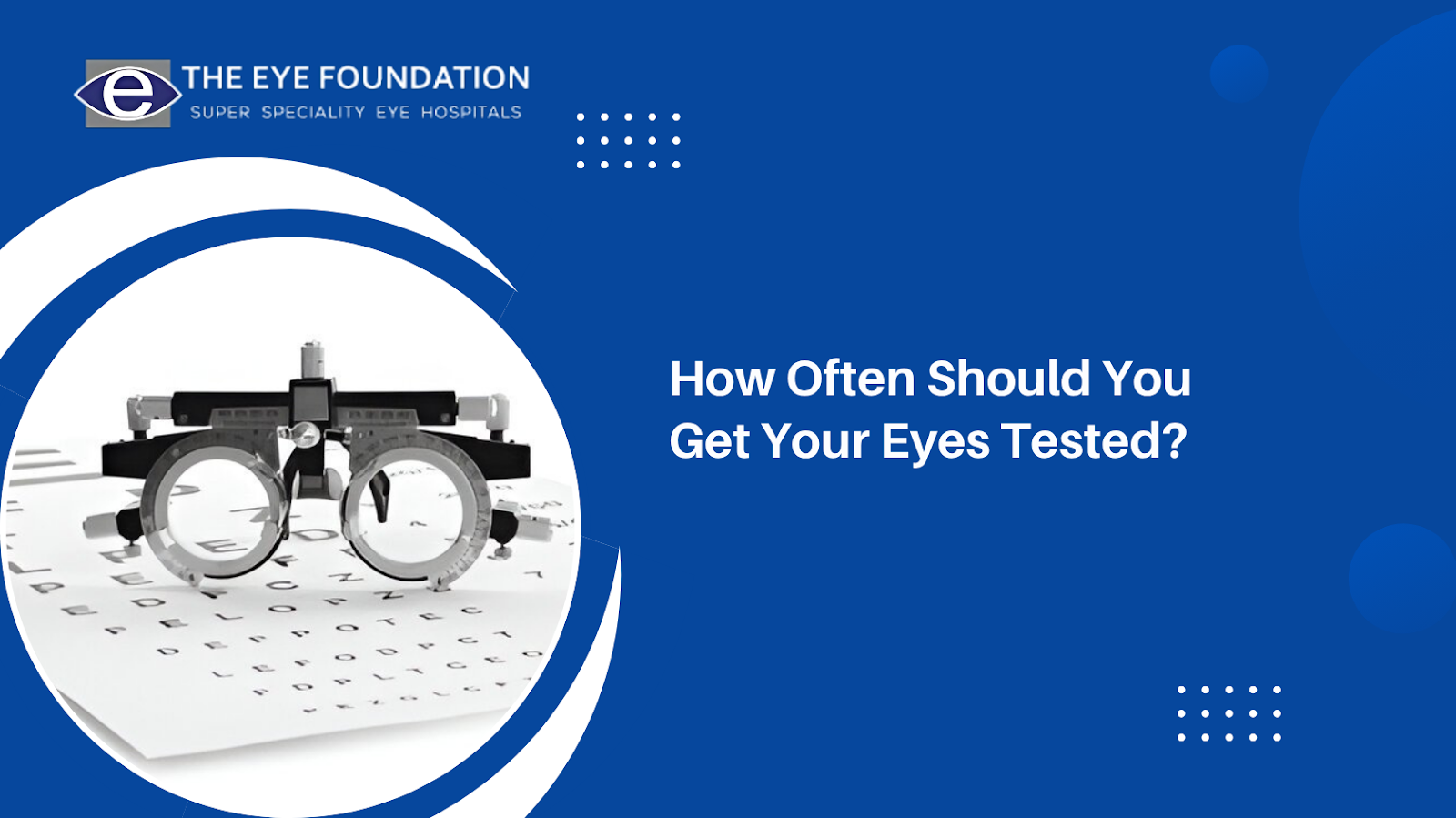Finding the best cataract surgeons in Coimbatore is important for keeping your vision protected. Cataracts can be one of the most common eye problems, especially for people over the age of 50, however, it’s possible to develop cataracts earlier in life due to lifestyle factors, health conditions, or genetics. Fortunately, cataract treatment has come a long way, with modern technology and expert surgical techniques making treatment faster, safer, and very effective on outcomes. In this guide, we will tell you what you need to know about cataracts, treatment options, and provide insight into why The Eye Foundation is a reliable choice when it comes to choosing a cataract surgeon in Coimbatore.
Understanding Cataract
In simplest terms, a cataract is the clouding of the natural lens of the eye behind the iris and pupil. In a normal healthy eye, the lens focuses light onto the retina to provide clear vision. When the lens is cloudy due to build-up of proteins, vision can be blurry, hazy, or have less vibrancy.
Key Facts about Cataracts:
- Cataracts rank as the world's most common cause of blindness, but surgery will restore vision in nearly all cases.
- They often develop over time and slight changes may not be noted early in the process.
- Modern cataract surgery is one of the safest and most successful operations performed today.
Causes of Cataract
While advancing age is the most common source of cataracts, other common causes include:
- Age-related changes –The natural build-up of proteins in the lens over time results in opacification of the lens.
- Diabetes –Cataracts contribute to changes in the lens metabolism resulting in higher risk for cataratic formation.
- Prolonged UV exposure – Sunlight and the length of time exposed, depending on the amount of proteins in the lens, can damage lens proteins.
- Eye injuries or trauma – Eye injuries can promote cataract formation in the injured eye.
- Certain medications – Long-term systemic steroid use, for example, can promote cataract formation.
- Family history –Obviously, genetics play a role.
Symptoms of Cataract
You might have a cataract if you notice:
- Blurry or cloudy vision
- Increased sensitivity to light or glare
- Faded or yellowed colors
- Double vision in one eye
- Difficulty seeing at night
- Frequent changes in eyeglass prescription
If you experience any of these symptoms, consult an eye specialist for a detailed examination.
Treatment for Cataract
Cataracts cannot be repaired using medicines, diet, or drops. The only curative treatment is cataract surgery, to remove the cloudy lens and replace it with an Intraocular Lens (IOL).
Types of Cataract Surgery:
- Phacoemulsification (Phaco) – Uses ultrasound waves to break-up the cloudy lens and replace it with an IOL.
- Femtosecond Laser-Assisted Cataract Surgery (FLACS) – Assisted Cataract Surgery (FLACS) - Uses laser technology to increase precision and safety.
- Micro-incision Cataract Surgery (MICS) –Uses a surgical approach to lens removal that is less invasive and has a quicker recovery time.
Choosing the Best Cataract Surgeon in Coimbatore
When selecting a cataract specialist, consider:
- Experience and Expertise – Years of work as a surgeon and the number of successful surgeries.
- Technology Used – Availability of the most up to date laser-assisted systems.
- Patient Reviews – Other patient's experience can be an essential tool.
- Comprehensive Care – Everything from diagnosis to follow up visit post-operative procedure.
Step-by-Step Cataract Surgery Process at The Eye Foundation
- Comprehensive Eye Examination – Visual acuity test, a slit-lamp examination, a biometry exam for IOL power calculation.
- Pre-Surgical Counseling – To understand the patient's lifestyle needs to make the lens type recommendation.
- Surgical Procedure – The actual surgical procedure takes typically around 10-15 minutes and will be delivered in a very pleasant manner with topical anesthesia (the patient's eye is numb so that the actual procedure is pain-free).
- Post-Surgery Recovery – Usually, most patients notice an improvement in vision within 24-48 hours.
- Follow-Up Visits – Regular post-op visits with the surgeon to monitor for healthy healing and visual clarity.
Life After Cataract Surgery
- Faster Recovery – Most individuals resume normal activities within a few days.
- Improved Vision Quality – There are brighter more vivid colors and there is an overall improvement in night vision.
- Minimal Restrictions – In general, minimal precautions such as avoiding rubbing your eyes and protecting them from dust is all that is required.
- Long-Term Clarity – The implanted IOL will never get cloudy like a natural lens does.
Tips to Prevent or Delay Cataract Progression
While cataracts are often inevitable with age, you can slow their development by:
- Wearing UV-protective sunglasses
- Eating a diet rich in antioxidants (green leafy vegetables, carrots, citrus fruits)
- Managing health conditions like diabetes
- Avoiding smoking and excessive alcohol
- Going for regular eye check-ups after 40
Take the First Step to Clear Vision
If you are searching for cataract surgeons in Coimbatore, the eye hospital in Coimbatore provides the perfect mix of skills, technology, and patient care. With cutting-edge laser-assisted techniques, they also have a proven history of successful surgeries you can trust for a safe and precise way to restore your eyesight.
Don't let cataracts cloud your life. Contact The Eye Foundation - Coimbatore today to book your appointment and recover your vision.






